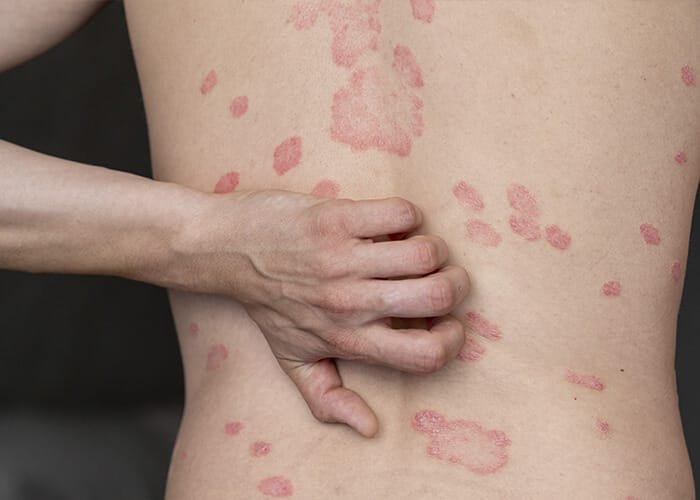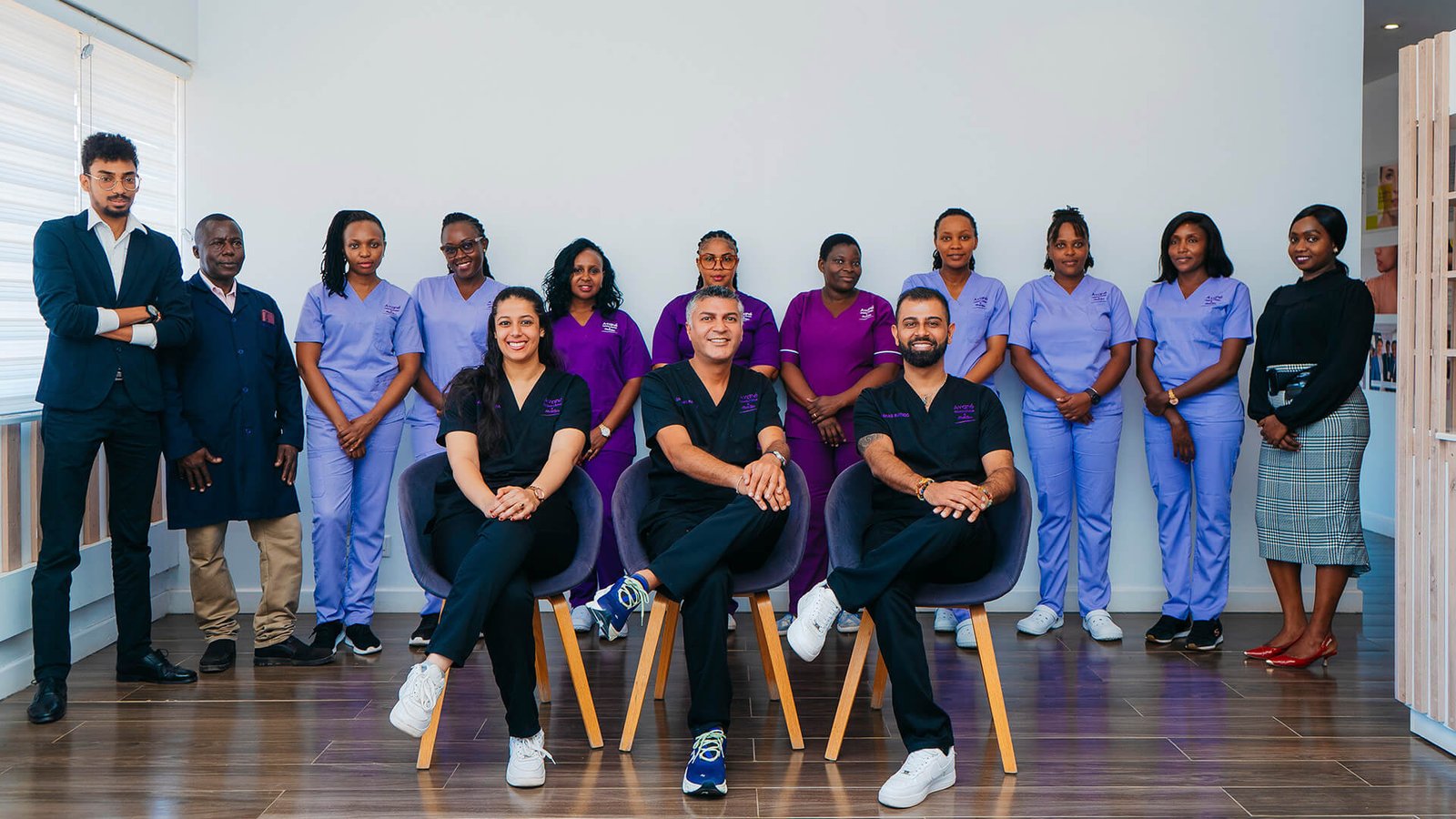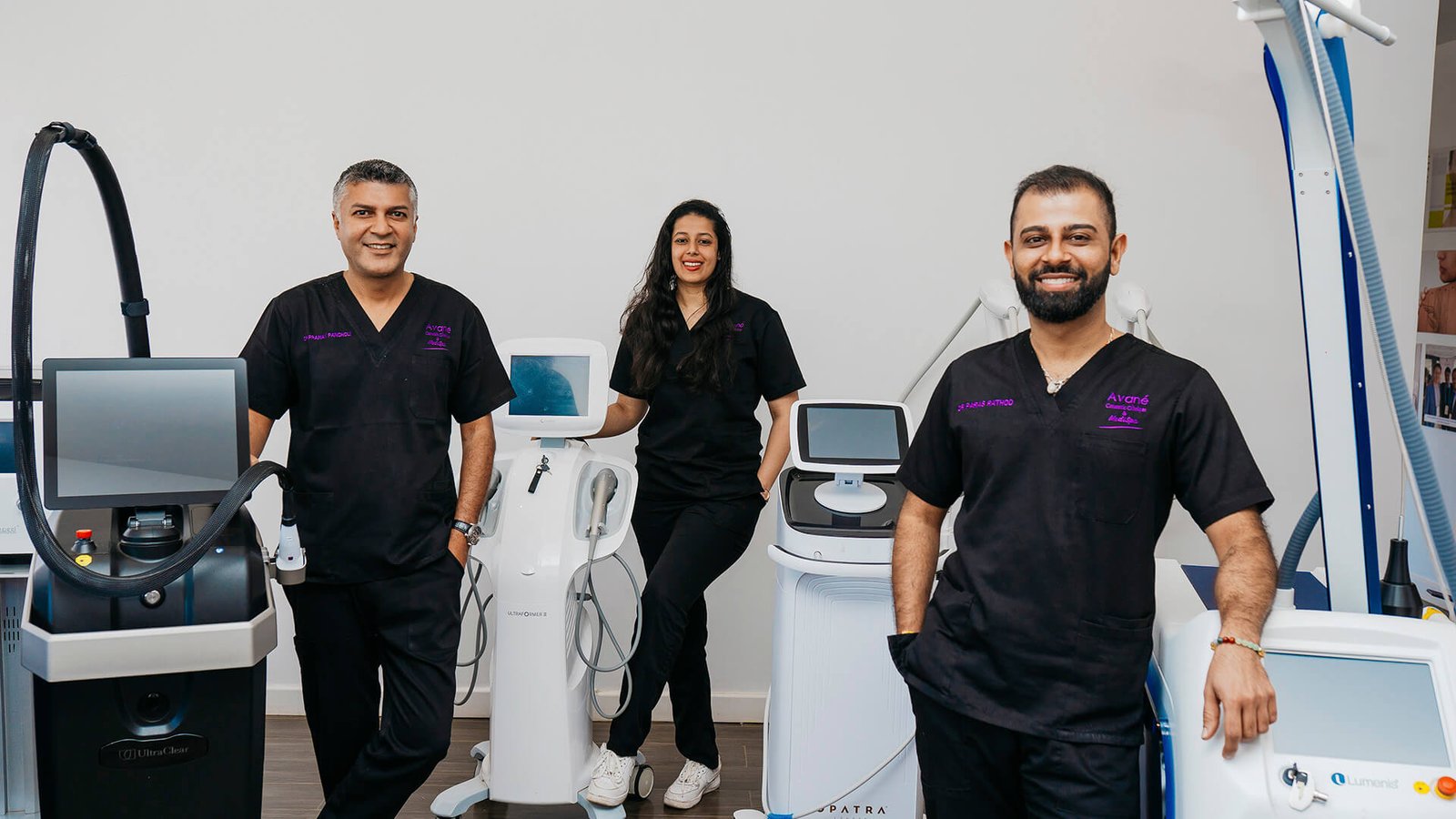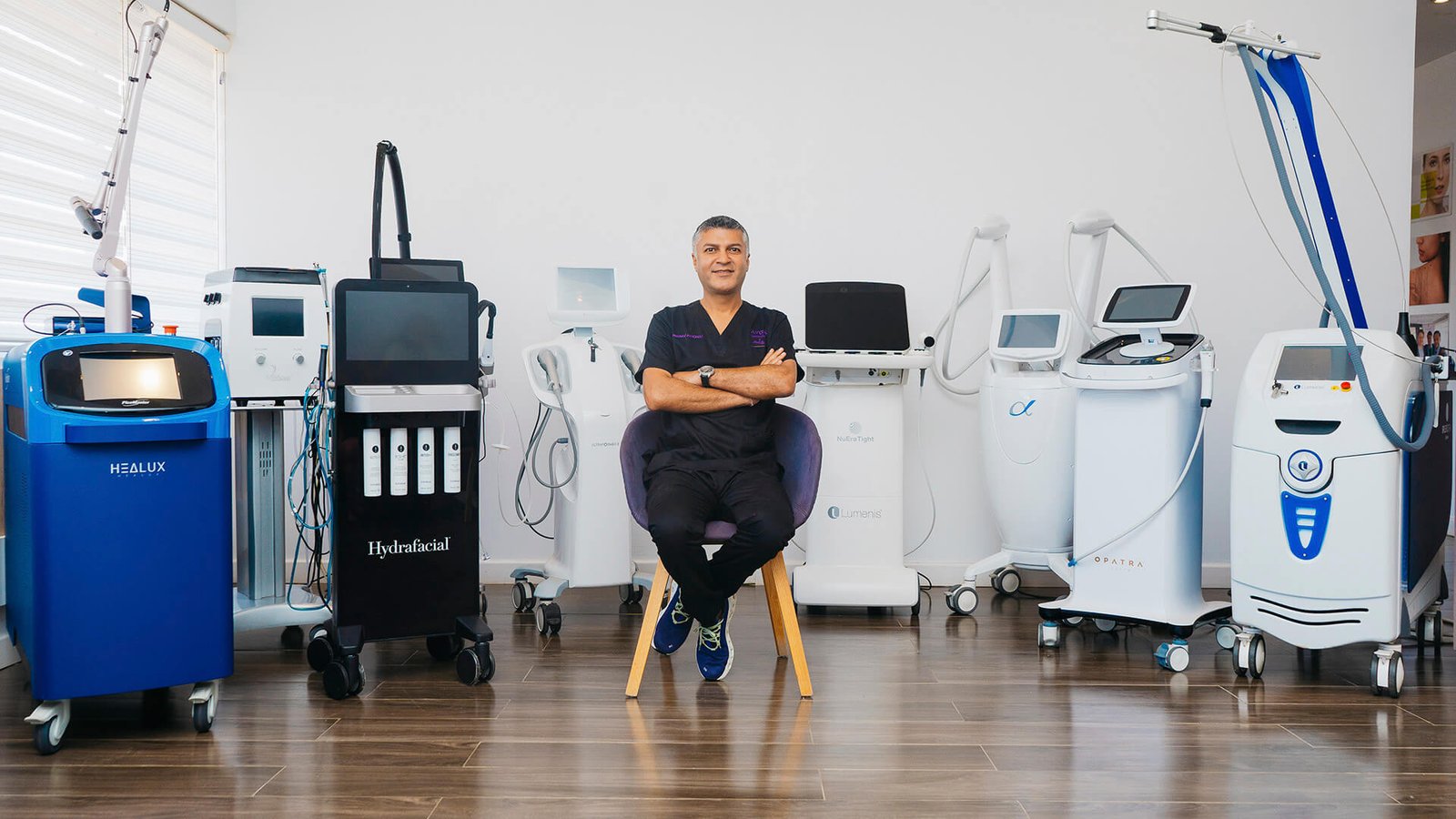The skin is the largest body organ in humans and has various functions such as heat regulation, water conservation, and protection of underlying parts. It is also a key element of appearance and identity and creates a significant control in our physical and social interactions. As important as the skin is, it is affected by various skin diseases, which delimits its roles. According to research more than a third of the world’s population (over2.3 a billion people) are affected by skin infections. This makes skin infections the fourth most frequent cause of human diseases. Psoriasis is one of the most common skin conditions affecting humans globally and lowering their skin health. The good news however is that most of these conditions are treatable. Avané clinic in Nairobi, Kenya, has a comprehensive treatment service for skin conditions, including psoriasis treatment. Avané clinic brings the solution to your psoriasis problems near you.
Psoriasis is an autoimmune condition that affects the skin and causes thick pink or red patches of skin covered with white or silvery scales called plaques. On darker skin tones, the patches may appear purplish or dark brown with grey scales. The patches may at times crack and bleed. Psoriasis can begin at any age but it usually starts in early adulthood. It can affect people of any race and gender, though women are easily affected as compared to men. It mainly attacks the elbows, knees, face, scalp, lower back palms, and feet. In rare cases, it may also affect the nails, mouth, and genitals. The rashes mostly affect smaller parts of the body but in severe cases, they affect larger portions of the skin.
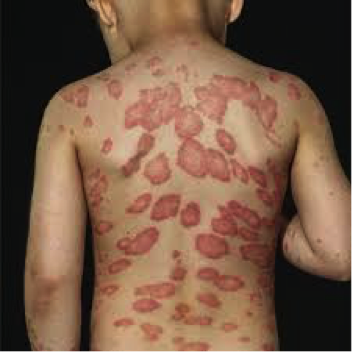
Psoriasis is caused by defects in the workability of the immune system. The immune response overreacts causing inflammations, leading to hyperproduction of new skin cells growing too fast. Normally, new skin cells grow every 28 to 30 days, but in people with psoriasis new skin cells grow in 3- 4 days. The cells grow and move to the skin’s surface. The continued overproduction of new cells and their build-up replacing the old cells on the surface forms the silvery scales of psoriasis. These scales are the plaques. They may at times grow and merge, covering large areas of the skin.
Psoriasis is a chronic skin condition, meaning it cannot go away but persists throughout the life of its patient. There is no known cure for it, although its symptoms can be treated and managed using modern medication. Psoriasis is also a genetic condition, meaning that it can be passed from one generation to another. It may have an unorthodox pattern of skipping some members of the family line. Here, it is possible for one to have the condition without passing it to their children, but their grandchildren will inherit it. Certain conditions are believed to trigger a psoriasis outbreak, such as cold weather, stress, other autoimmune conditions such as streptococcal, certain medicine prescription,s and skin injuries such as cuts and scrapes.
Types of psoriasis
There are various types of psoriasis, which include:
- Plaque psoriasis – It is the most common type, affecting about 80%- 90% of psoriasis patients.
- Inverse psoriasis – It appears on skin folds, and looks like thin pink plaques without the scales.
- Pustular psoriasis – Has small pus-filled bumps on top of red patches of plaques.
- Guttate psoriasis – causes small pink or violet spots, which are thick or raised like in plaque psoriasis. It mainly develops on the torso, arms, and legs.
- Erythrodermic psoriasis– It’s a severe and rare type of psoriasis, that often covers large sections of the skin. The skin appears sunburnt and the scales may shed off in large sections. It is also associated with fever and general illness.
Symptoms of psoriasis vary from one person to another and depending on the type of psoriasis. General symptoms include itchiness, dry and cracked skin that bleeds, scaly scalp, painful skin, joint pains, and cracked crumbly nails. These can also be symptoms associated with other conditions, that’s why it is always recommended for one to consult with a medic for examination and diagnosis. At Avané clinic, our doctors will enquire about the medical history of the patient and their family to ascertain if any members of the family had records of psoriasis. They perform a physical examination of the patient and the affected part for diagnosis. A biopsy (a small sample from affected skin) may also be taken for further tests and analysis. This helps the doctors confirm the diagnosis and know the specific type of psoriasis one has. It also helps to rule out the possibility of the patient having other forms of skin diseases.
Once the diagnosis is confirmed, the doctors decide on the type of treatment to provide the best remedy. There is no cure for psoriasis, hence the treatment aims at reducing the inflammations and scales, slowing down the growth of skin cells, and removing as much plaque as possible. The treatment is based on the severity of the rash, location of the rash on the body, possible allergic reactions by the patient, age of the patient, and the overall health of the patient. Most commonly used remedies include:
- Steroid creams
- Moisturizers for dry skin
- Vitamin D3 ointment
- Retinoid creams
- Anthralin (slows down slow cell reproduction)
- Medicated lotions such as shampoos.
These treatments have a fair chance of improving the patient’s condition, but in instances where they don’t, we take more strategic treatments. This may involve:
- Light therapy – Specific wavelengths of UV light helps decrease skin inflammation and slows down skin cell production.
- Retinoids – They are vitamin A drugs with more adverse effects on the condition.
- PUVA – Combines the use of psoralen drug with a special form of UV light.
- Cyclosporine – used for severe psoriasis.
- Immune therapy – Uses medication to block the body’s immune system and prevent it from triggering an autoimmune condition like psoriasis.
- Methotrexate – It’s a medication that is used with severe cases of psoriasis. It may however cause liver damage. Methotrexate requires constant monitoring by the doctors, and we may perform several biopsies to check on the liver health.
The medication used in the treatment of psoriasis has several side effects on the patient. Methotrexate may cause liver damage while retinoid drugs lead to birth defects and cyclosporine medication may lead to high blood pressure and kidney damage. Moreover, it causes burns, and sensitivity to sunlight and places one at a higher risk of getting skin cancer. Itchiness, nausea, and persistent red skin are other related side effects. The adverse effects require the doctors to have constant checks on the health of our clients to ensure that the treatment isn’t causing more harm. A committed care provider is what you need throughout your treatment journey, and that’s exactly what you get at an Avané clinic.
Despite their assumed similarities, psoriasis and eczema are different conditions. Eczema causes small rashes, while psoriasis causes plaques. Eczema also causes more itchiness than psoriasis and tends to appear behind the knees and inside the elbows, unlike psoriasis. They are similar in that both are skin conditions, and are caused by a fault of the immune system. They don’t have a cure yet despite the massive scientific and medical research being done on them, but there is hope that eventually a cure will be found.
Psoriasis also affects the joints, in a condition called psoriasis arthritis. It causes painful, stiff a swollen joints, which may cause a lot of damage to the joints. It has a characteristic red or purple plaque around the affected joints that sets it apart from other arthritis. Medical reports indicate that 30% to 33% of psoriasis patients develop psoriasis arthritis. Moreover, psoriasis patients are at a higher risk of developing diabetes, obesity, strokes, heart attacks, and high cholesterol.
The benefits of psoriasis treatment at Avané clinic are: you get to achieve better skin clearance, with fewer flares, fewer rashes, and reduced plaques. Our medications are efficient and may help you achieve up to 99% skin clearance. Our patients experience fewer side effects as our doctors are well conversant with the conditions and know the best treatment which is safe and most effective. The doctors also use the patient’s personal details to find a personalized treatment for our patients. Moreover, our medication and procedures used are cheap and client-friendly, as compared to other alternative modes of treatment. We conduct a detailed examination and analysis, which helps you find other conditions that may be wrong with you. This saves you countless unnecessary visits to the doctors for the same. Our medication is efficient and will help impact your body and especially the joints, saving you from the effects of psoriasis arthritis.
Before and after.
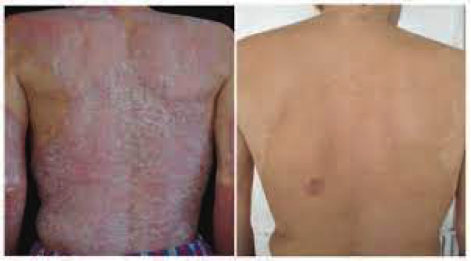
The effects of psoriasis are dire, and require a comprehensive treatment plan, with a competent and committed medical partner who has got your best interest at heart. There is no better place for this than Avané clinic. We are located at the Yaya center, in Nairobi Kenya. We have a well-equipped facility with highly trained and experienced medical personnel led by its lead specialist, Dr. Pancholi. Visit us today for consultation and treatment or contact us to book an appointment. Don’t let psoriasis or any other skin condition make you feel less important. We have just the treatment for you.
